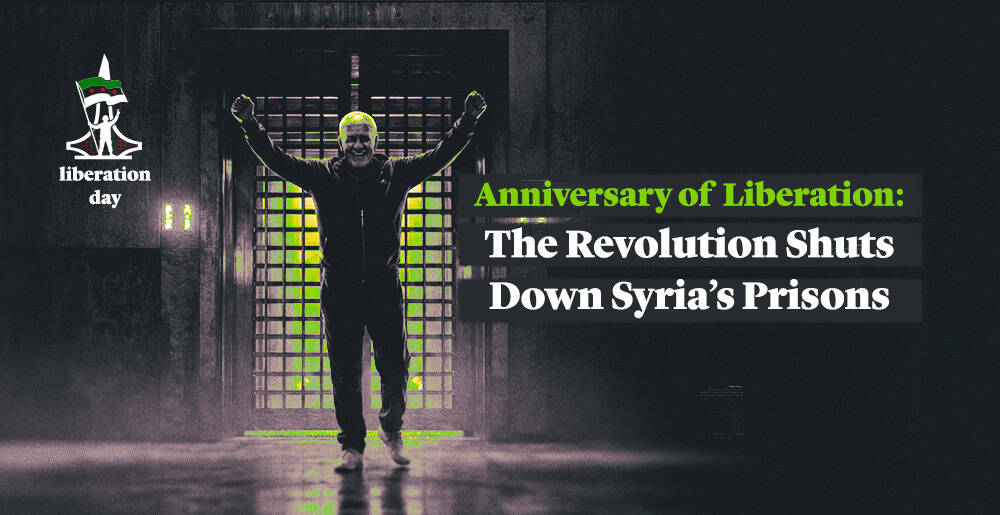EU Asylum Applications Decline: How Are Egypt and Tunisia Involved?

“Europe clearly faces very real migration challenges.”
The stricter deterrence policy adopted by some European Union countries to curb irregular migration began showing tangible results in 2024.
In the latest indication of this, EU statistics office Eurostat revealed that first-time asylum applications to EU countries dropped in June 2024.

New Measures
Eurostat reported 70,375 first-time asylum requests from non-EU citizens across the bloc's 27 countries, a decrease of 17% compared to June 2023.
Syrians continued to represent the largest portion of applicants, making up 12% in June, followed by Venezuelans at 9% and Afghans at 8%.
According to Eurostat, over three-quarters of those applications were submitted to Germany, Spain, Italy, and France, with 2.9% coming from unaccompanied minors.
However, applications to Germany fell by 27%, totaling 167,070 in June 2024 compared to the same period in 2023.
By the end of April 2024, around 317,000 applications had been received, a 2% increase compared to the same period in 2023.
With the continued rise of the far-right in European politics, some EU countries have reconsidered their stance on accepting irregular migrants.
Notably, in the European Parliament elections held in June 2024, groups supporting new migration policies gained more seats.
In this context, Germany reinstated border controls for six months starting on September 16, 2024 and designed a plan allowing authorities to reject migrants directly at the German border.
Germany, long seen as one of the EU's more open members, has recently tightened asylum and residence laws.
It reduced social benefits for some refugees and resumed deporting Afghan nationals for the first time since the Taliban seized power in 2021.
Meanwhile, Hungarian Prime Minister Viktor Orban threatened on September 6 to bus migrants from Budapest to Brussels to pressure the EU. This comes as the EU has demanded Hungary readmit refugees in compliance with a 2020 Court of Justice of the European Union ruling requiring respect for international asylum procedures.
On September 18, the Dutch government admitted to delaying all new asylum applications and called for withdrawal from the European Pact on Migration and Asylum, even before its implementation in 2026.
The new coalition in the Netherlands, led by the far-right anti-immigration Party for Freedom, stated that the country could no longer bear the influx of migrants.
The four-party government plans to freeze new asylum applications, provide only basic housing, limit family reunification visas, and speed up forced returns.
In September 2024, Sweden proposed increasing the amount paid to individuals willing to return home from €880 to €30,000 per person.
Stockholm also plans to introduce a law requiring public sector workers to report undocumented individuals to the authorities.
Finland's government wants to prevent unauthorized persons from accessing non-emergency healthcare.

Partnerships to Block Migrants
Under the current center-right government led by Giorgia Meloni, Italy has tightened its migration policy with stricter rules for accepting irregular migrants.
At the international level, this includes agreements with third countries like Tunisia to prevent boats from departing its shores, and with Albania, which signed a five-year agreement with Italy in November 2023.
Under this agreement, Tirana agreed to provide areas on its territory to house up to 36,000 migrants and asylum seekers annually, funded by Italy.
In recent decades, Italy has become one of the primary countries of initial reception for so-called irregular migrants arriving in Europe via the Mediterranean.
The Albanian model applies only to people rescued at sea by Italian authorities and only to individuals from countries Italy has designated as “safe countries of origin.”
Due to Italy's crackdown on irregular migration, in the first seven months of 2024, around 33,000 people arrived in Italy by sea, significantly fewer than the 88,000 who arrived during the same period in 2023.
Migrants heading to Europe, most of whom come from conflict zones in the Middle East and Africa, are beginning to feel the effects of the new migration and asylum agreement that the European Union approved in May 2024.
This new migration and asylum agreement particularly defined the principles of the EU's internal migration policy.
Following this, individual EU countries or several states began prioritizing political efforts to strengthen partnerships with migrants' countries of origin or transit countries.
The promotion of the idea of transferring asylum seekers to third countries by EU member states and political groups has raised concerns among asylum seekers.
This model involves relocating those with rejected asylum claims to a third country where they would receive international protection if direct repatriation to their home country is not possible, similar to the UK's plan to deport refugees to Rwanda in East Africa.
The EU has increasingly focused on migration partnerships with third countries during 2023, signing a comprehensive memorandum of understanding with Tunisia in July 2024. Following this, migrant departures from Tunisia to Europe decreased.
Tunisia is mainly a transit country, and reports indicate that it has been confining migrants and expelling them to neighboring countries.
The EU also signed a partnership agreement with Egypt in March 2024, which covers not only migration but also other forms of support, including financial assistance.
Egypt remains one of the main countries of origin in EU asylum statistics, while also hosting more than 670,000 registered refugees and asylum seekers, according to the UNHCR.

Real Challenges
In this context, the Foreign Policy Institute, (FIIA) funded by the Finnish Parliament, affirms that “the general political approach to asylum policy in Europe seems to have become more stringent in a relatively short period of time.”
In a research paper published on September 24, 2024, FIIA added that for many years, the European Union has been criticized for its inability to achieve unity in its migration policy.
“Mutually beneficial partnerships and close relations are the key to decreasing the demand for perilous journeys and to attracting workers to the aging continent.”
Since 2015, around 6.8 million asylum seekers have arrived in Europe, and more than 3.6 million of them have been ordered to leave, but only 2 million have actually departed.
Now, under intense political pressure from far-right parties that hold power in half a dozen member states and are gaining ground in almost every election in other countries, governments are outdoing each other in introducing tough anti-migration measures.
But as European countries seek to reduce the number of first-time asylum applications on their soil, there is concern that the agreements and procedures may overlap.
This atmosphere threatens to strain relations with the EU and could jeopardize not only the Union’s new migration and asylum pact, which was passed after a decade of tough discussions, but also the valuable Schengen Area of free movement.
The Schengen visa allows holders to travel freely between 26 countries, including EU member states and four non-member states: Iceland, Norway, Switzerland, and Liechtenstein, for up to 90 days.
In this context, Marcus Engler, of the German Centre for Integration and Migration Research, told The Guardian, “It’s hyperactive. It’s one restriction after another, with no impact assessments and no evidence they will actually work. They’re clearly driven by electoral logic.”
Europe clearly faces very real migration challenges, Engler concluded.
“But these are not solutions. Perhaps the influence of far-right parties has reached a critical point – the mainstream parties have no plan, but they’re freaking out,” Engler stated.
He added, “It took several generations of politicians to build the EU as a space of free movement and human rights. It seems the current generation of political leaders is intent on tearing it all down in the space of a few years.”
Sources
- Anti-immigration mood sweeping EU threatens its new asylum strategy
- First-time asylum seekers in EU drop by 17% in June, Eurostat says
- Italy and Migration [German]
- Germany's toughening on immigration sparks tense debate in Europe
- EU migration policy and calls for the externalisation of asylum: Intensifying partnerships, exploring new models










